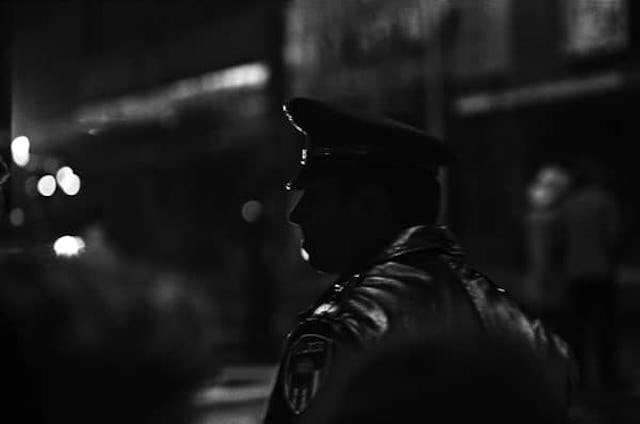San Francisco Police Will Stop Responding To Non-Criminal Calls, And Our Entire Country Should Follow In Their Footsteps

I was 12 when I had my first interaction with the police. The crime: allegedly putting gum in a classmate’s hair. My family had just moved from the South Side of Chicago to a predominately white town in Southern Illinois. I was the Black girl from Chicago, and no one ever let me forget it.
This particular day, the principal called me into the office, explained my crime, ignored my pleas of innocence, and left me isolated in a room. Lunch time came, and an office worker delivered a tray of unappealing food to my makeshift jail cell. I picked over it as a police officer walked into the room.
He never sat down. He stood tall when he asked me what I wanted to be when I grow up. I don’t remember which answer I gave him (I bounced back and forth between doctor and writer back then), but I do remember he told me I could be charged with assault and my future would be over.
I spent what I think was the next two weeks, though it felt like a year, eating lunch alone in the office as punishment. The goal was to make me feel like a criminal, and it happens to Black children at an alarming rate. That interaction, however, should have never happened.
Across America on any given day, there are too many police interactions occurring that shouldn’t involve law enforcement at all. School discipline, disputes between neighbors, and noncriminal matters involving homeless people and mental health crises often end up with some level of police involvement.
Mayor London Breed said that in San Francisco, this will no longer be the norm. In the next few months, Breed will roll out her plan to limit these police confrontations, address police bias, demilitarize the police, and promote economic justice. Breed’s proposal also plans to redirect money to programs that serve the communities that have been “systematically harmed by past City policies,” Insider reported.
Black and Native American communities have been overpoliced, leading to increased tensions, interactions, and police brutality. Racist policies like redlining have kept Black people in cities yet segregated in poorer neighborhoods with low home values and underfunded schools. One in five adults experience mental illness each year. What all of these groups have in common is that they’re more likely to come into contact with the police.
About forty percent of adults with serious mental illnesses will come into contact with the criminal justice system during their lives. A vulnerable population in a country with limited mental health care options, plus high costs and lack of universal health care, needs more mental health care resources — not policing. Yet, states and the federal government have been gradually cutting funding for mental health resources for years. Local, state, and federal funding for increased police salaries, operations, and prison construction, however, hasn’t skipped a beat.
By divesting from policing and minimizing the role of police officers in the U.S., other American cities can follow San Francisco’s lead. We need to address the systemic racism that has long devalued and brutalized Black and Native American communities, care for the mental health of Americans before people end up in crisis, and cut off the school-to-prison pipeline that makes school a prison for Black children. The police should not be the default when dialing 911.
America is certainly in a state of emergency, but not one that calls for militarized policing. We can fix this with well-placed federal and state funding. Money — something police districts across the United States are in no shortage of. It calls for defunding the police and investing in communities of color as well as access to social workers and behavioral health specialists. It calls for changing the default so that when people call 911, they get the help they deserve — and often that doesn’t mean officers with guns.